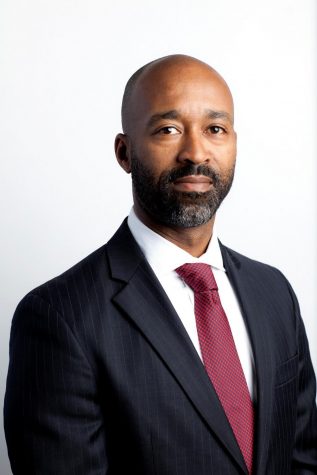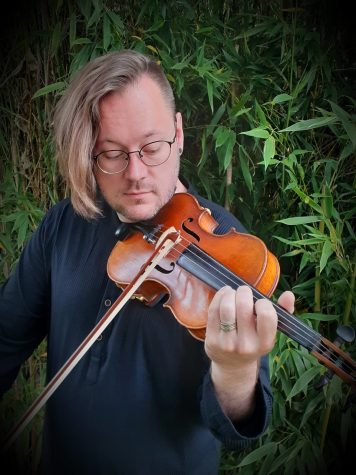Consulting crisis in times of transition
Board consultants called in for crisis management
September 29, 2021

On Sept. 16th, Interim President Pete Menjares sent an email to students welcoming them to the new year, noting that the board is “partnering with a consulting group to assist us with this important process of listening to voices throughout the campus and beyond.”
In an email sent exclusively to faculty, Menjares went into more detail concerning who the consultants were and the company they work for, Venture LLC. According to their website, their specialty areas include “crisis and conflict management, leadership development and coaching, assessments, training, and strategic planning.”
There are three consultants: Dr. Andrew Westmoreland, most notably the former president of Samford university, a Baptist university in Alabama, Dr. Curt Bechler, whose focus is in areas of crisis communication, listening, and leadership, and Adrea Hill, who specializes in program development and problem solving, research analytics and project management.
The three major issues the Board of Trustees are seeking consultation for, according to the Chair of the Board of Trustees Cedric Davis, are the global pandemic, the presidential transition, and discussions around culture and policies. The faculty email from Menjares also cited these problems as SPU’s significant issues.
However, Faculty Chair of the English Department Dr. April Middeljans and Director of Music Education and Orchestral Activities Dr. Chris Hanson believe the consultants are here mainly to address LGBTQIA+ issues.
“‘Discussions about culture and policy’ is his code for the LGBTQ,” Middeljans said of the email. “Euphemisms aside, it’s front and center in the consultant’s discussions.”
Middeljans expressed hope that the consultants would aid in facilitating conversation between the board and faculty whereas Hanson expressed concern about a lack of transparency from the Board of Trustees.
“I do not think we would have consultants if we were not navigating LGBTQIA+ issues,” Hanson said. “I think the consultants have come in for that issue, so the fact that the communication about the consultants is not explicitly addressing that is disconcerting.”
Hanson also was skeptical of the consultants.

“If we can’t actually see and document diverse perspectives in the consultation, was it even a consultation?” Hanson said. “When they initially told the faculty at a retreat, and they said ‘these are experts in the field,’ what field? The field of dealing with LGBTQIA+ issues at Christian universities? That’s not a field! That doesn’t exist. There’s no journal of how to queer Christianity.”
Middeljans believes Westmoreland in particular has been called in to address LGBTQIA+ issues. When Westmoreland was president of Samford University, there was a struggle to recognize a student LGBTQIA+ organization. In 2017, following the faculty vote approving recognition of the group, Westmoreland sent an open letter to staff, writing that he understands biblical marriage as between a man and a woman.
He went on to say that some faculty may be disappointed by his unwillingness to fully embrace contemporary views of sexuality, while others may be disappointed he appears to offer accommodation to those who hold such views. However, the letter explains that the situation is not black and white for Westmoreland.
“A clearer path for a different institution with a different president might be to take a less nuanced approach, lining up either fully in favor of more recent views of human sexuality or in favor of a campus that is closed to the exchange of viewpoints and ideas, but that approach does not reflect who I am, so I would be incapable of leading in either of those directions,” Westmoreland said.
Westmoreland also wrote that this division of beliefs could drive the new generation away from churches and religious universities.
Other faculty like Middeljans are optimistic about the consultants.
“I think the consultants are gonna be really helpful, I’m very positive and feel very good,” Middeljans said. “They’re hired by the board, but I did not get the sense that they feel beholden in any way to them. They’ve been fired by other boards before, just because the boards are just like, ‘I don’t agree with your assessment.’ They’re not afraid to tell the board things it might not want to hear.”
Middeljans said that ultimately, it will be up to the Board of Trustees to decide whether they want to follow the consultants’ recommendations or not, whatever they will be.
As of writing, the consultants are currently on phase one, Listening and Assessment, of their four-phase process to help guide the board toward a “shared direction.” Ideally, the consultants will be able to carve a way for SPU’s future in uncertain times, and possibly lead the way towards the rebirth of an institution.
“We are all going to be responsible,” Davis said of the changing of policy.


























































































